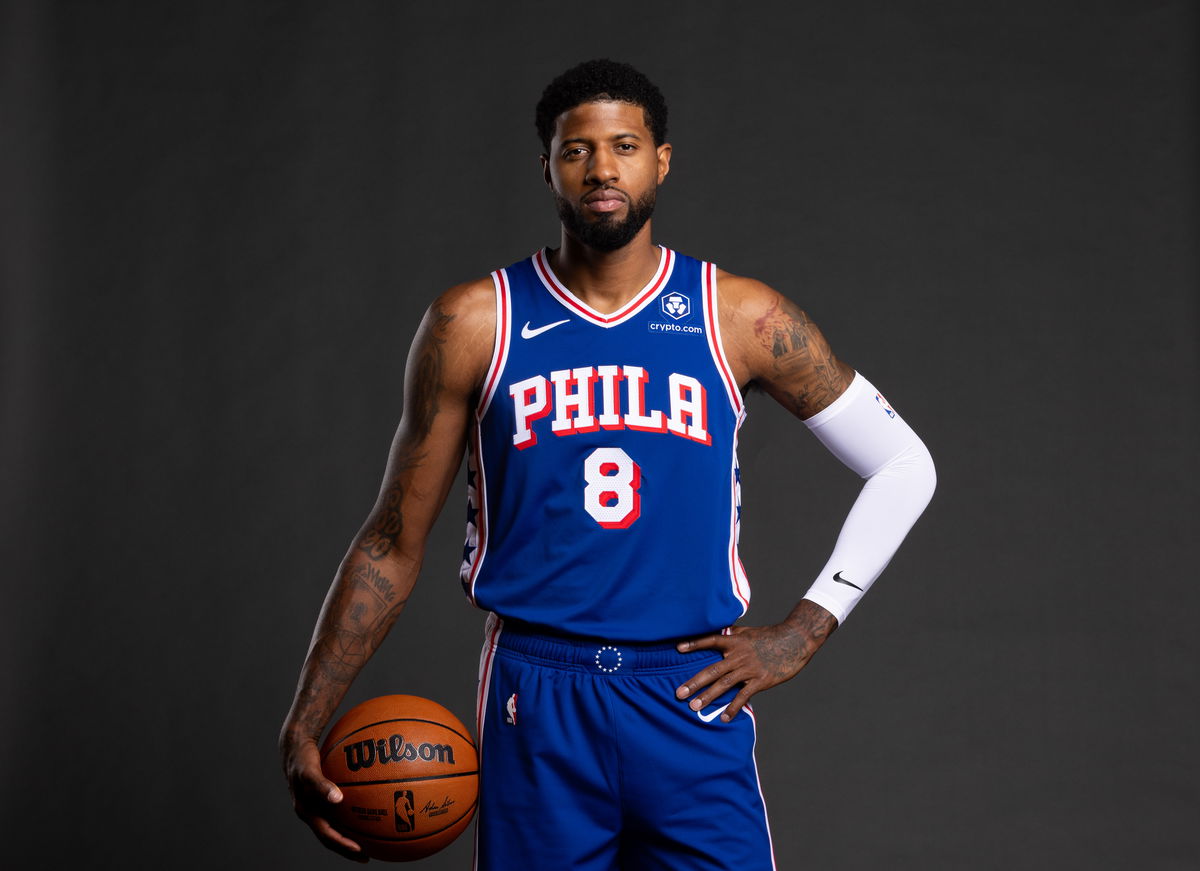
Imago
Sep 30, 2024; Camden, NJ, USA; Philadelphia 76ers forward Paul George (8) poses for a photo on media day at the Philadelphia 76ers Training Complex. Mandatory Credit: Bill Streicher-Imagn Images

Imago
Sep 30, 2024; Camden, NJ, USA; Philadelphia 76ers forward Paul George (8) poses for a photo on media day at the Philadelphia 76ers Training Complex. Mandatory Credit: Bill Streicher-Imagn Images
In the words of Paul George, “I think the biggest challenge to justice is fairness … it doesn’t matter the color, it doesn’t matter the ethnicity, religion, everybody should be held accountable.” This powerful statement encapsulates George’s commitment to equity and social justice, particularly for the African American community. As a prominent NBA star, he not only excels on the court but also uses his platform to advocate for change. So, let’s delve into PG‘s ethnic roots, his family’s influence, and the meaningful contributions he has made to support and uplift his community.
Watch What’s Trending Now!
Family Background: Resilience in the face of adversity
Born on 2 May 1990, in Palmdale, California to Paul George Sr. and Paulette George, his parents were part of a long migration of African-American families to Antelope Valley. They migrated with hopes of cheaper housing and a safer and less crowded way of life than in South Central LA.
ADVERTISEMENT
The migration came with its challenges. Growing up as predominantly black and Hispanic, the George family faced neighborhood challenges. They didn’t always have equal employment opportunities.
His father worked blue-collar jobs for a rim company and as a carpenter, while his mother was a homemaker. But do you know that PG wasn’t the first athlete from his family? His two older sisters were athletes too. Portala played volleyball at Cal State-San Bernardino, and Teiosha played basketball at Pepperdine University and professionally in Germany.
Top Stories
Venezuelan Ex-NBA Star Shares Message After Trump Captures President Maduro
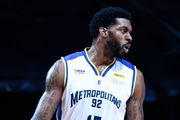
Kyrie Irving Breaks Silence After Injury Return Update Emerges

Lakers Fans Demand JJ Redick Trade Away NBA Star After Struggle vs Grizzlies
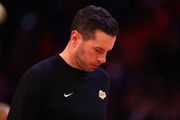
Anthony Edwards Takes Action After Woman Allegedly Holds Onto Gift Meant For Young Wolves Fan
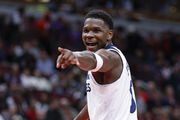
Is Jaylen Brown Dating Kendall Jenner? Fact-Checking Viral Claim About Celtics Star

ADVERTISEMENT

ADVERTISEMENT
However, his journey was deeply rooted in the experiences of his family. His mother faced a life-altering stroke when Paul was just six years old. Caused by two blood clots, which left her with paralysis on the left side of her body. This significant challenge brought immense struggles to the George household but also sparked an indomitable spirit within Paul.
“I saw it first hand with my mom. Honestly, it built me up as a man. It built character in me. It built toughness in me. Just to see how hard she worked to get to where she is now is remarkable and amazing.” Her resilience became a guiding light, helping him navigate his own setbacks, including injuries and career challenges.
Paul’s heritage as an African American has been a crucial part of his identity, influencing his perspective on justice and equality. Inspired by his family’s struggles, he actively seeks to uplift his community.
ADVERTISEMENT
Speaking up for the community: Paul George and the Movement for Justice
As the NBA resumed its season in 2020, Paul George stood at the forefront of a movement that transcended basketball. In response to widespread protests against systemic racism and police brutality following the killing of George Floyd in May 2020, PG and his teammates made a bold statement by kneeling during the national anthem, symbolizing unity and solidarity. “I think you’ll see a unity, I think you’ll see the league stand as one, You’ll get a glimpse of that shortly of what our message will be going forward,” PG said.
For George, it was a call to action to highlight the struggles and triumphs of the African American community. He then went on to reflect on the importance of the Black Lives Matter movement saying, “I think it’s very important. I think it’s great that we can highlight this. Some of the great things that went on in our culture, it’s great that we can see how far we’ve come and how much work we still have to do. But it’s awesome that, you know the world can see us in a positive light”.
ADVERTISEMENT
PG’s commitment to Black Lives Matter resonates beyond the basketball court, reminding us all of the ongoing fight for equality and the importance of standing together for change. In a world that often feels divided, George’s words and actions serve as a beacon of hope and a call to action for everyone to engage in the fight for justice.
More than basketball: Paul George connecting with the community
Remember his mother’s stroke? Even after two decades of that incident, PG still grapples with the pain. Understanding the impact of such a life-altering experience, he strives to uplift others in similar situations. Back in 2019, he hosted a Christmas dinner at Dave & Buster’s in Hollywood for ten local families affected by strokes. There they shared their stories and ended by giving away jerseys and shoes, he played arcade games with the children, creating joyful memories amid their struggles.
ADVERTISEMENT
Paul’s mission is clear: he aims to ensure that others don’t have to endure the same hardships in isolation. “It’s been awesome for them, they’ve been enjoying it. I know how it is. I know as a kid how much it affected me. For these kids, they are having fun and having a break from reality. A lot of them said this is one of the best Christmases they had already.” George shared, noting the joy these families experienced.
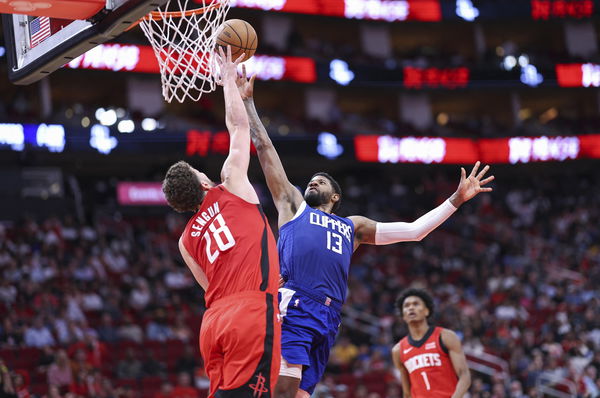
ADVERTISEMENT
In addition to his philanthropic efforts, George has become an advocate for mental health awareness. Having faced his mental health battles, especially during the pressures of the pandemic, he emphasizes the importance of seeking help. “I want to be a part of the solution, which is why I am speaking out now,” PG said.
Through his Paul George Foundation, he partnered with BetterHelp, for providing access to free therapy for those in need. It helps to create awareness and give away up to $3 million in the form of one month of free therapy to anyone in need who signs up.
ADVERTISEMENT
By believing that greater awareness and support can lead to a more compassionate society. By intertwining his journey with community outreach, George is committed to fostering resilience and hope for all. It raises a question: How can we all contribute to fostering a more compassionate community for those facing similar battles?
ADVERTISEMENT
ADVERTISEMENT
ADVERTISEMENT

